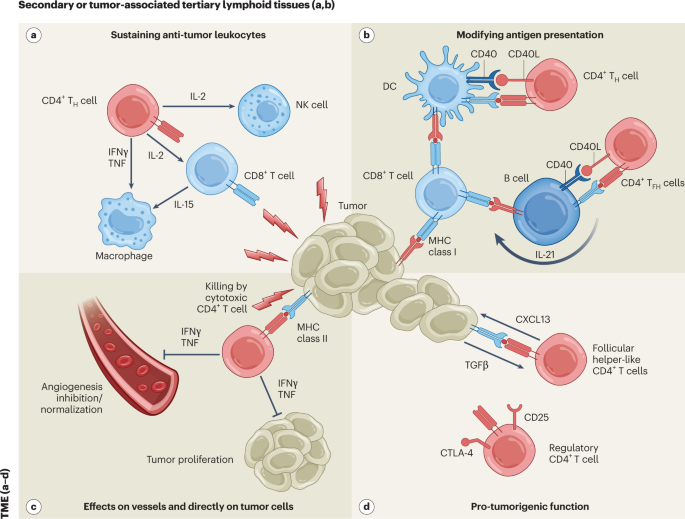Reference


Moonshot's Answer
Cytokine production by CD4+ cells in centenarians shows distinct changes compared to younger individuals. According to various studies, there is a shift towards Th0 cytokine production, characterized by a decrease in the prevalence of Th1 pattern (IFN-gamma production without IL-4) in T cell clones from centenarians compared to younger subjects [1]. Additionally, centenarians' CD4+ T cells tend to differentiate into pro-inflammatory cells with decreased secretory function [2]. There is also a significant decrease in the percentage of TNF-α positive cells within the activated/memory CD4+ subset in older individuals [4]. Furthermore, centenarians exhibit an increase in pro-inflammatory cytokines, which is at least partially compensated by other factors [7]. The image from one of the studies shows increased Th17 cells in centenarians secreting fewer pro-inflammatory cytokines in vitro [15], illustrating the unique cytokine profile in this population. In summary, centenarians' CD4+ cells demonstrate a shift towards a Th0 phenotype with reduced cytokine production capacity, particularly in pro-inflammatory cytokines, which is a key aspect of immunosenescence and may contribute to their longevity.
Follow Up
Related
What are the long-term immunologic effects of thymectomy in myasthenia gravis patients?
What are the effects of resveratrol on lymphocyte proliferation and cytokine release?
What are the main T cell abnormalities in common variable immunodeficiency?
What was the impact of extended exposure to electromagnetic fields on women's immune systems?